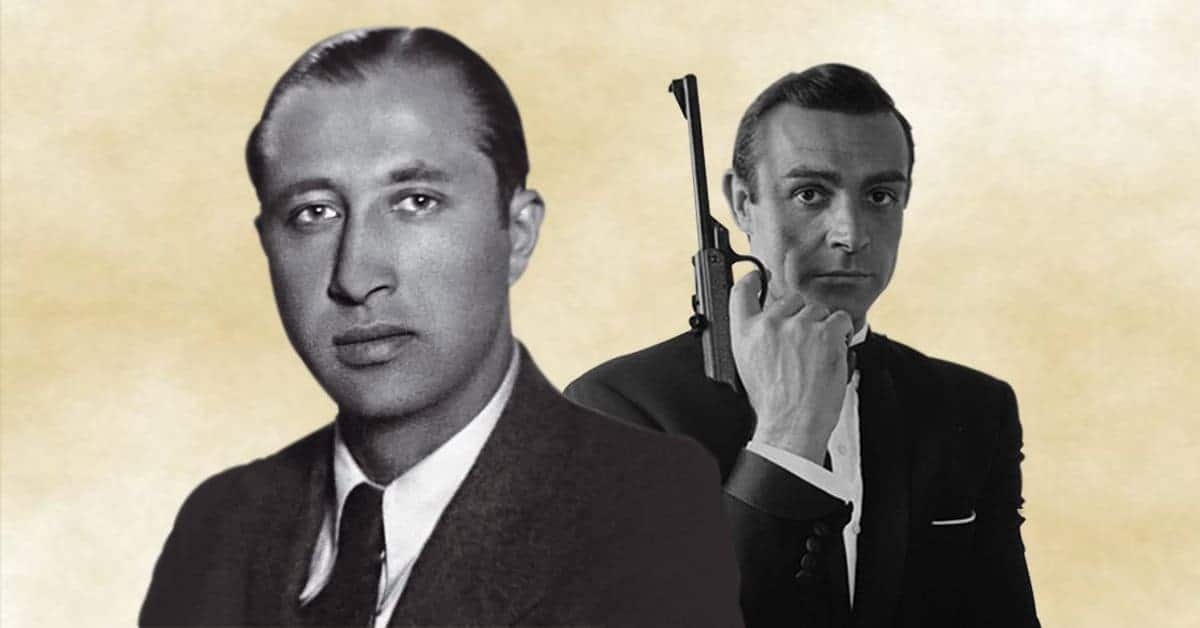Few people have ever have led a life as extraordinary or as impactful as did the Serb Dusan “Dusko” Popov (1912 – 1981), a World War II triple agent who was awarded medals by both the Germans and the British. A mostly unsung and largely unrecognized hero, Popov played an oversized role in securing the success of the Allied invasion of Normandy. And he pulled it off in style: helping defeat the Nazis while running around living the dream life of playboys, partying it up in top notch night clubs and casinos with a bevy of beauties and famous actresses.
He managed that because he was blessed with an abundance of natural charm and smoothness, good looks that set hearts aflutter, plus an agreeable presence that just drew people to him. That combination of charisma, coolness, wit and looks did not go unnoticed by a mid level British intelligence officer named Ian Fleming, who would go on after the war to create fiction’s greatest spy, James Bond. Indeed, it is almost a certainty that Fleming, who became acquainted with Popov during the war, modeled much of Agent 007 upon the smooth Serbian operator.

Popov’s Journey From Dilettante Playboy to Antifascist
Popov was what might be called one of fortune’s favorites, starting with his birth in 1912 into a wealthy Serbian family that had been affluent for centuries. His grandfather was a rich banker and businessman who owned factories, mines, and retail establishments, and his father made the family richer still by adding real estate to its investment portfolio. Popov, an avid outdoorsman and athlete since childhood, thus grew up in the lap of luxury, attended by servants in the family’s numerous villas or while sailing the seas in one of the family’s numerous yachts.
He was set on the playboy path from an early age by an indulgent father, who built his kids a huge seaside villa, and gave them generous allowances that allowed them to host lavish parties there. However, while Popov’s father was indulgent, he did not simply spoil his kids rotten, but also insisted that they get as good a top notch education as his considerable wealth could afford. Thus, by the time Popov was a teenager he was fluent in French, German, and Italian, in addition to his native Serbian. Such linguistic skills would come in handy down the road.
After studying in England – where he got expelled from a prestigious prep school – and France, Popov returned home to study law at the University of Belgrade. At age 22, he went to Germany to pursue a doctorate at a university there, not long after the Nazis came to power. There, he befriended a rich German student named Johnny Jebsen, who had anti Nazi views.

While in Germany, Popov, who until then had simply been a dilettante playboy with no interest in politics, came to loathe the Nazis and develop strong political opinions against them. He was not discrete about his views, however, and in 1937 he was arrested by the Gestapo on suspicion of being a communist, and tossed into prison. His friend Jebsen came to his aid, alerting Popov’s father, who in turn got the Yugoslav government involved. After high level contacts between Yugoslavia’s prime minister and Herman Goering, then head of the Gestapo, Popov was sprung from jail but ordered expelled from Germany.
The experience did nothing to improve his opinion of the Nazis, and when WWII broke out, Popov was primed and eager to pay them back if the opportunity presented itself. It presented itself when his friend Jebsen, whose family’s business needed favors from Popov’s, informed him in 1940 that he had joined Germany’s military intelligence, the Abwehr. Popov passed that information to a contact in the British embassy named Clement Hope, along with the observation that Jebsen was not that fond of the Nazis.

